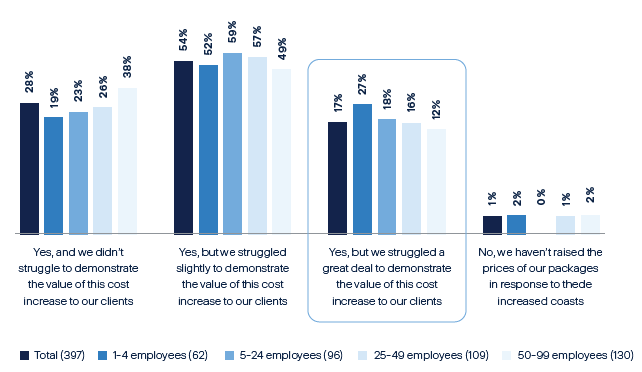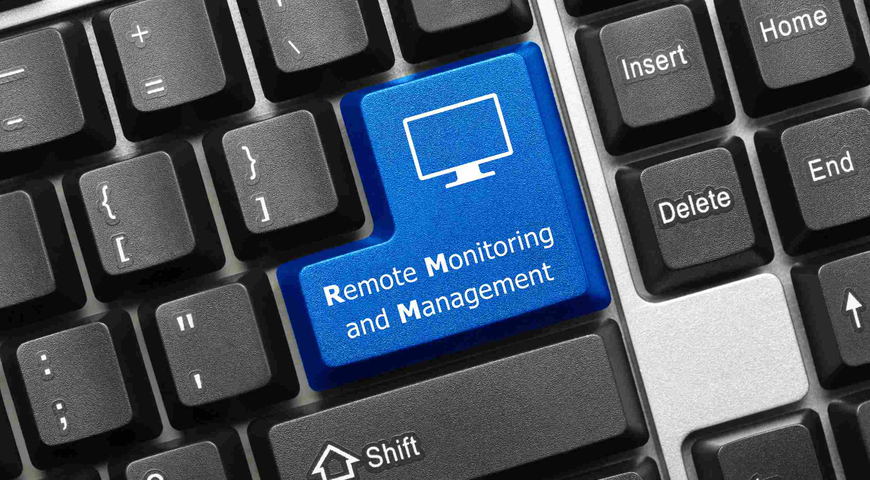As part of the excitement surrounding the Acronis #CyberFit Summit in Miami (going on now virtually and in Miami), we’ve just released groundbreaking new research with media partner ChannelPro Network that dives into critical issues facing MSPs including cybersecurity attacks, vendor sprawl, remote work, and SaaS tool management. Specifically, this new research conducted by Vanson Bourne surveyed 400 MSPs across the globe, diving deep into the biggest challenges and opportunities that MSPs face when providing cybersecurity, backup, and disaster recovery (DR) services.
The report, MSPs Speak: Cybersecurity and the future role of the MSP is available now for free. Additionally, I am also honored to be participating on a panel in Miami with Jay McBain (Forrester), Rich Freeman (ChannelPro Network), and Dave Sobel (MSP Radio) to discuss the research results and their implications. While you will definitely want to download and read the entire thing cover-to-cover, here are some highlights of the key results and what it all means.
MSPs feel vulnerable and a lack of trust abounds
Given the recent flurry of supply-chain attacks seen in the MSP industry, it’s not surprising to learn 97% of MSPs are concerned about suffering a cybersecurity breach in the next 12 months, with 81% being extremely or moderately concerned. This sense of vulnerability is amplified by a lack of trust in two directions: 49% of MSPs responded that their clients do not completely trust the security of the services their organization provides while 53% of MSPs do not completely trust the vendors they use to provide cybersecurity services.
The pressures that MSPs report facing are exacerbated by the new reality of supporting remote work environments. Only 2% of MSPs report not “struggling” with providing cybersecurity backup and DR services to clients as a result of the rise in remote work. In fact, 43% report having a limited number of tools available for managing remote environments.
To combat this sense of vulnerability, many MSPs have added additional tools to their technology stack. MSPs use an average number of four vendors used to provide cybersecurity, backup, and/or DR services, with 30% report using more than five vendors.
Smaller MSPs are struggling the most
Smaller MSPs (those with one to four employees) face additional pressure. They are nearly twice as likely to have reported (compared to the largest MSPs with 50-99 employees) that their clients have suffered from certain cybersecurity breaches like a supply chain attack or a zero-day exploit. Smaller MSPs also report increased challenges managing remote work environments with 53% of them indicating they have a limited number of tools for managing remote environments and 58% indicating that managing remote environments has increased their costs.
More tools, more problems
Unfortunately, deploying technology tools at a problem does not make it go away. In fact, the resulting “tool sprawl” can and does create a new set of problems. According to the results, the two most commonly faced challenges are the integration of security offerings with existing business and IT systems (40%), and security workflow and process creation and updates (37%).

In addition to integration, training, documentation, and workflow challenges created by more tools, there is a glaring cost concern. Over the past two years, the average cost of providing cybersecurity, backup, and/or DR services has increased by 19%. However, 71% of MSPs report struggling to demonstrate the value of these cost increases to their clients which creates a serious dilemma and pressure on profit margins.
The future role of SaaS management
MSPs report that their clients use an average of 14 SaaS tools, a finding very consistent with recent Acronis end-user research. However, MSPs also report only managing an average of 58% of their clients’ SaaS tools, with only 3% indicating they manage 100%. This discrepancy results in greater vulnerabilities for clients, because SaaS data is not being properly protected, and the MSPs have limited visibility into these environments.
There is a huge potential for growth for service providers if they are able to prove to their clients that there are benefits to them managing the licenses, on-boarding, security and performance of these SaaS applications. MSPs report that the biggest obstacles to managing more of their clients’ SaaS tools are not having the right relationships with line of business decision makers (44%), not having the right tools (41%), and a lack of trust (39%).
The trend and benefits of consolidation and integration
Given the reported “tool sprawl” among MSPs and corresponding integration, workflow, and cost issues, it is not surprising that 92% of MSPs report having consolidated vendors but 70% plan to consolidate further.
Diving deeper into the implications of consolidation, MSPs can save an estimated $229,159 by lowering licensing costs, lowering training costs, and managing the costs of employee documentation. Additionally, MSPs who have integrated their cybersecurity, backup, and/or DR services save an average of five hours recovering from a breach or data loss incident.
Further benefits can surely be realized, as 41% of MSPs indicate they want to see the automation of backup and recovery tasks more tightly integrated into their cybersecurity services to more adequately address the ongoing and pervasive threat of ransomware.
How Acronis enables MSPs to modernize
The results from this research are very clear – MSPs are facing numerous challenges in providing cybersecurity services and simply throwing more tools at the problem is making matters worse not better. As such, there is a trend towards consolidating vendors as well as more tightly integrating existing vendors with workflows, and those MSPs which are successful in these efforts will have a material advantage over their competition.
Acronis helps MSPs by unifying data protection, cybersecurity, and protection management, eliminating the complexity and management headaches of multiple vendors while improving security. Featuring a set of essential cyber protection capabilities included at no cost or on a pay-as-you-go basis, Acronis Cyber Protect Cloud enables MSPs to build services at little to no upfront expense, ensuring 100% coverage of clients' workloads with cyber protection.
Installed with one agent and managed through one console, the centralized management of Acronis Cyber Protect Cloud ensures MSPs can fully protect their clients without having to juggle multiple solutions. A single pane of glass provides the visibility and control needed to deliver comprehensive cyber protection – from creating local and cloud-based backups to stopping zero-day malware attacks with advanced AI-based anti-malware and antivirus defenses that are VB100 certified.
Download the full report here.
About Acronis
A Swiss company founded in Singapore in 2003, Acronis has 15 offices worldwide and employees in 50+ countries. Acronis Cyber Protect Cloud is available in 26 languages in 150 countries and is used by over 21,000 service providers to protect over 750,000 businesses.



